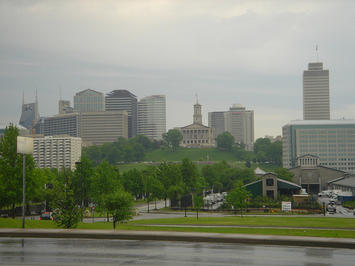
I traveled to Nashville for the first time in 2007, spending most of my time in the downtown area. I posted my impressions here, noting the high growth and high ambition level as well as the fantastic freeways, but also the generally unimpressive development and built environment.
I did another fly-by in April 2008. I made a conscious effort to try to get out and see different areas this time around. My tour guide was an Indy native who had spent the last decade or so in the northeast. He’d moved to the city about a year previously, so was seeing some of this for the first time himself. But it worked well, I thought.
I believe Nashville is an extremely important case study for metros in the Midwest to examine. Here is a city that was a sleepy state capital for many years while other southern towns such as Atlanta and Charlotte took off. Then it began heading on an upwards trajectory. It is not yet at such a high growth rate that it appears to be a completely different sort of place than the Midwest. Its population growth is only 1.9% per year, for example, not much higher than Midwest growth champion Indianapolis at 1.5%. But all the trend lines are accelerating. Corporate headquarters are flocking, in city development is booming, transplants from the north are arriving. It would not surprise me to see this city pop into a higher gear when the economy turns upwards again.
Nashville is a great case study because we can observe the inflection point in growth more or less as it happens. And also try to make sense of what is driving it. And to understand why Midwestern cities aren’t seeing it. I look at Nashville and ask myself: what does this place have on the Midwest? Compare it to Columbus, Cincinnati, Indianapolis, Louisville, Kansas City, and Milwaukee and see if anything jumps out that would explain it. Some unique factor of Nashville. Consider:
- Nashville is smaller than most of those places today, so it isn’t size
- It can’t be just because Nashville is in the south or a no income tax right to work state. Memphis in the exact same state and is hurting. Birmingham and Montgomery haven’t done much in right to work Alabama.
- Its college degree attainment of 31% is below many comparable Midwest cities, though it should be noted that Nashville is moving up the league tables fast. It was recently ranked the 4th biggest “brain magnet” in the United States.
- It has no particular unique industry or assets. It can cite its Music City USA image, which certainly drives tourism and money. But Midwestern cities have other equivalent things they can counter with. Plus, it was Music City USA all the time it was a sleepy state capital as well.
- Just being the state capital doesn’t explain it. Indy and Columbus are both in that role and are getting out paced by Nashville.
- Having a consolidated city-county government is not unique. Indy and Louisville are both consolidated, and Columbus is quasi-consolidated because of the ability of that city to annex most of Franklin County and even parts of several adjacent counties.
- There are mountains, but the geography does not appear to be particularly compelling.
- There are not fabulous historic districts in every region. In fact, while there are some nicer neighborhoods, much of the city is built out exactly like most Midwestern burgs of equivalent size. A lot of it is outright dumpy.
- Its cultural institutions are not as advanced as Midwestern ones. The Nashville Symphony isn’t going to take on the Cincinnati Symphony any time soon, that’s for sure.
- It doesn’t have some fortress home grown companies that are driving it.
- It has Vanderbilt University, but most Midwestern cities have a good school in them too.
I compare Nashville to the top performing Midwest metros and just scratch my head. Nashville’s arguably got nothing on the Midwest and in many ways is playing from an inferior position. So what is going on?
I’ll take a shot at explaining a few things I’ve noticed. I’m not saying these are necessarily the answers. But they are things to consider. If I were head of strategy for a Midwestern metro, I’d be conducting an extensive peer city comparison of Nashville to try to figure it out in more detail. But here are some thoughts:
- First, as I previously noted, is the extremely high ambition level. These guys are clearly looking at places like Atlanta, Dallas, Charlotte, etc. and saying “Why not us?” Their mission is to become one of America’s great cities. There’s no “era of limits” in Nashville. You see this come through, for example, in their convention center plans, which call for 1.2 million square feet. It comes through in their highways, which are being built 8-10 lanes with HOV lanes, as if getting ready to become the much bigger city they plan to be. It shows in the numerous residential high rise and midrise projects. It shows in how Nashville, unlike every comparable Midwest metro, already has a commuter rail line in service. Midwesterners recoil from change, and would view becoming the next Charlotte or Atlanta with horror. But Nashville is eager to move up to the premier league, so to speak.
- Second is the unabashedly pro-growth and pro-business stance. Every development in the Midwest is opposed by some group of NIMBY’s. Densification, even in downtown areas, is often anathema to influential neighbors. Not in Nashville. Huge tracts of inner city are being rebuilt from vacant lots or single family homes into multi-story town houses or condos. There are midrises all over the place. It does not appear that development has any problem getting approved there.
- Third is low taxes and costs. Tennessee does not have a state income tax. Electricity from the TVA is dirt cheap. Property taxes cannot be increased without a public vote. It remains to be seen if this environment can be sustained, but for right now, cost appears to be an advantage.
- Fourth is that they’ve embraced instead of rejecting their heritage. Rather than saying that country music is for hillbillies and an embarrassment to their new ambitions as a big league city, they’ve proudly embraced it. They updated the image with a glitzy, “Nashvegas” spin and made it the core of what Nashville is all about. Most Midwestern elites seem to view their existing heritage negatively. But great cities have to spring from the native soil in which they are born. Their character has to be organic. Import all the fancy stores, restaurants, sports teams, transit lines, etc. you want, but it won’t distinguish your city. Nashville learned this lesson well, probably from Atlanta. The southern boomtowns took their existing Southern heritage, dropped the negative items that needed to be changed, updated the core positive elements, and created the vision of the “New South”. This is something that can be embraced by the masses, unlike the elitist transformations that are often promulgated.
- Fifth is that, again, they appear to have studied the lessons of places like Dallas, Atlanta, Charlotte, etc. They’ve seen the need for freeways. They’ve looked at the style of development and the neo-traditional urban form. I was very impressed to see that there while most condo developments and such were fairly undistinctive, I did not note any that exhibited poor urban design form. When I consider the poorly designed projects that are frequently implemented in, say, downtown Indianapolis, it is easy to see who gets out more. Nashville has done its homework.
- Sixth, Nashville is realistic and open to self-criticism without being self-flagellating. I posted my previous take on the city on a discussion forum dedicated to that city. Given the modestly negative tone contained in much of it, I expected to get crucified. Surprisingly, most of them basically agreed with it. Too many cities in the Midwest either engage in naive boosterism or wallow in woe-is-us. Perhaps because of the large number of newcomers, there’s a more realistic assessment of where Nashville stands. And this enables rational decisions about where it needs to go.
If anyone else has observations to share, I would love to hear them.
Here are some photographs I took while there. First, a view of the Tennessee capitol building across a green space I believe is called the Bicentennial Mall.
A street scape in Hillsboro Village, a small commercial district near Vanderbilt University.
The Pancake Pantry in Hillsboro Village, a breakfast place of high local repute. I was initially skeptical but the food was actually pretty darn good. This place is huge and there was still a line out the door at 10am on a Friday morning. Pretty crazy.
The storefronts are a nice urban touch, but if you look behind this building you see a gigantic parking lot. This is perhaps an example of faux-urbanism. Putting the parking lot in the back doesn’t make it any less a strip mall. It is a difference in form, not function.
One of the many vacant lots with a “condos coming soon” sign.
The main road heading west of out downtown, West End Avenue, is developed at very high densities. I haven’t seen much in the way of this in most Midwestern cities. Midrises line both sides of the road basically from downtown to the interstate loop. It’s a six lane mega-street that moves tons of cars, but appears to have great bus service as well.
Here is another one under construction.
A proposed, but I believe not yet funded, high rise development. Indianapolis readers will no doubt recognize one of the towers as a clone of the proposed Intercontinental hotel for Pan Am Plaza that lost out as the convention center anchor hotel.
If you continue out to the west from here, you run into neighborhoods like Green Hills, which is where the most premier shopping in the area is found, and the suburb of Belle Meade, which serves as Nashville’s mansion district. Unlike traditional Midwestern mansion districts, this one is more rural in nature, with large estates that wouldn’t be out of place in a plantation. I did not take pictures of these areas, however.
Back closer to downtown is a nearby area known as the “Gulch”. It is not too far from Nashville’s Union Station.
This appears to be some seedy industrial district that is being transformed all at once by a series of large developments. It also has several clubs and restaurants. I ate at a seafood place called Watermark that was surprisingly good. I believe most of the places are upscale chains, though I’m not sure if Watermark is or not. Here’s a picture of some of the development.
More development
North of downtown is a small historic district called Germantown. This was rather unimpressive if you ask me. I didn’t see much that was German about it. It sure isn’t Columbus’ German Village, that’s for sure. There were some restaurants there. I had lunch at one of them which, fortunately for them, I can’t remember the name of because it was terrible. This area is mostly older single family homes.
The amazing thing about this area is that almost every vacant or industrial parcel was being redeveloped as condos. This really brought home to me the difference between Nashville and the Midwest. Were this, say, the Cottage Home area in Indianapolis, the local neighborhood association would use their historic district status to keep developments like these out. In Nashville, they are seen as a positive. Here are some examples.
More condos
More condos with retail space. Sorry for the very blurry pic but it was raining as you can see.
More condos being built, and still more proposed.
You get the picture. Also, note from all these photos the lack of design disasters. These are all workmanlike structures. The challenge for Nashville is that while there is a ton of new development, all of it is in a relatively generic, undistinguished style that could be in the downtown of almost any city. I did not get a strong sense of any type of vernacular style emerging. That is something I’d be looking for if I were them.
Lastly, here’s one suburban example that shows something I pointed out last time. Namely that even in brand new, upscale subdivisions they aren’t putting in sidewalks on both sides of the street. I find this very odd. While I noticed some bike lanes this time around, Nashville’s definitely got a long ways to go when it comes to pedestrian and bicycle friendliness.
Nashville is definitely a city that is on an upward trajectory. The volume of urban development and the business attraction success are impressive. It is exceeding even the best performing Midwest metros in that regard. However, it still lags the top southern and western metros. The current rate is very healthy, but probably isn’t sufficient to realize the civic ambitions. It remains to be seen whether Nashville can put it in another gear and take its place among the boomtowns, or whether it will merely stay on its current growth path. Either path is possible or a valid civic choice. While always possible, the likelihood that Nashville is going to take a major downtown does not appear high in the short term.
Aaron M. Renn is an independent writer on urban affairs based in the Midwest. His writings appear at The Urbanophile, where this piece originally appeared.
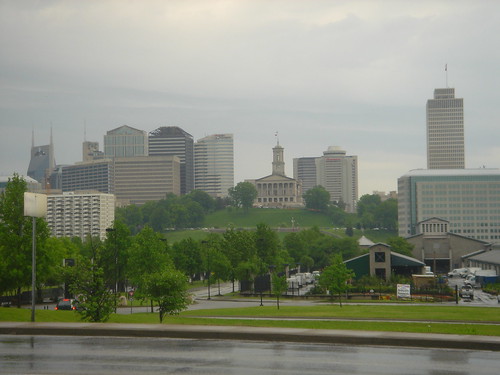
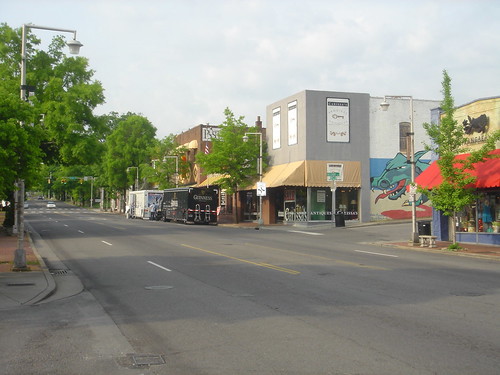
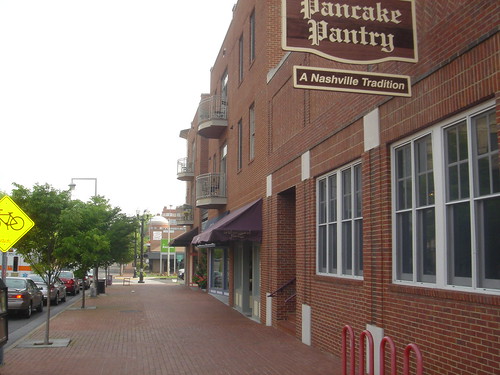
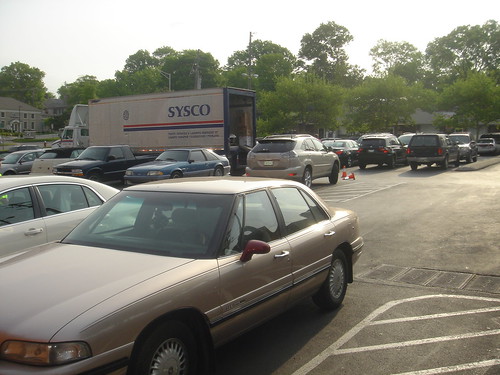


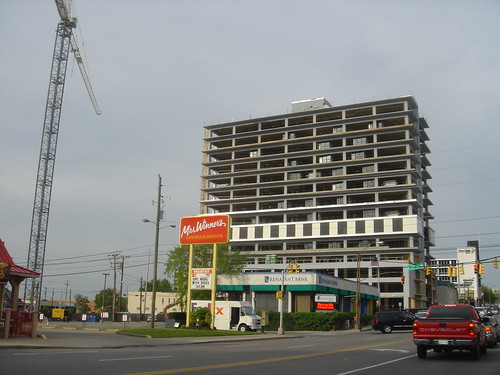
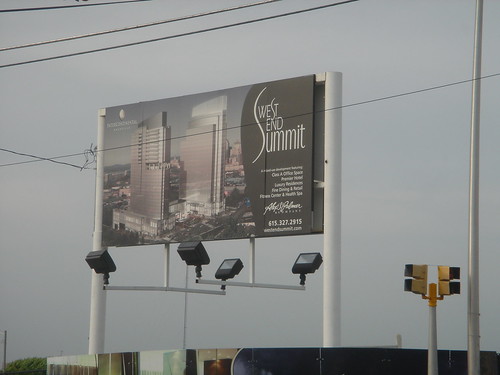

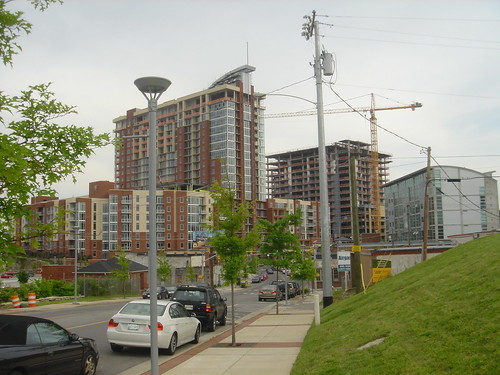
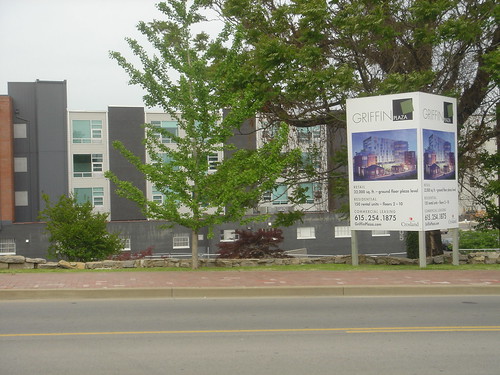
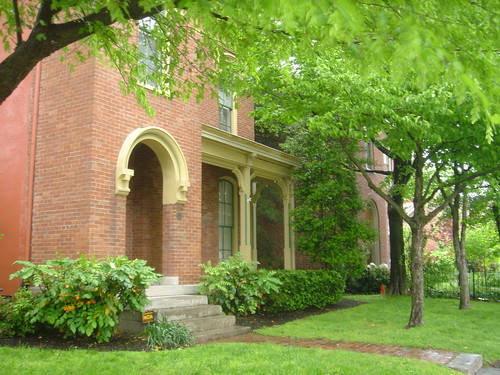


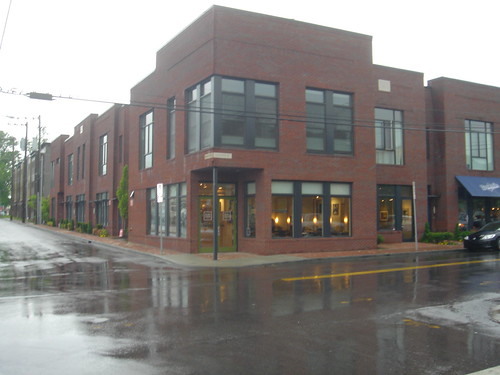
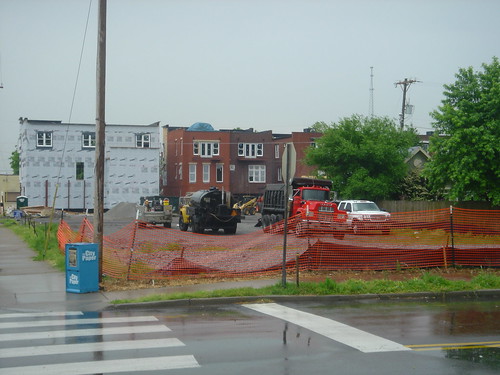
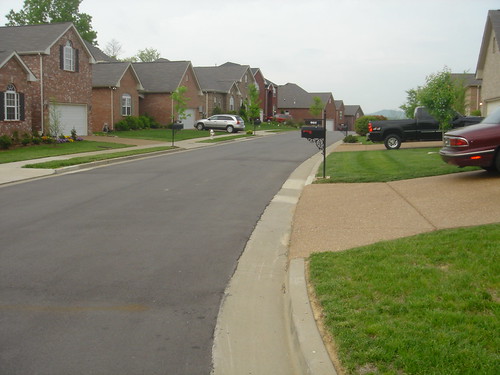













Nashville is very unique compared to those midwestern cities
"It has no particular unique industry or assets. It can cite its Music City USA image, which certainly drives tourism and money. But Midwestern cities have other equivalent things they can counter with."
I couldn't disagree more with this statement. Nashville's "Music City USA" image is a large part of what is behind its growth and attitude. As one of the other commenters mentioned, country music has become increasingly popular over the last 15 years and has gone from a genre that people looked down on to one that is just as popular as pop or rock music. This identy is hip, trendy and still gaining in popularity. Most young people that have the independence and willingness to relocate are going to go somewhere with a trendy and growing atmosphere that Nashville definitely has. If you ask just about anyone in the country what Nashville's identity is, they will probably be able to tell you instantly. Honestly of the midwestern cities that you mentioned (Columbus, Cincinnati, Indianapolis, Louisville, Kansas City, and Milwaukee) I can't come up with much that separates one from any of the others. Now I'm sure there's plenty that makes each city unique... but does that mean that it has a real, distinguishable identity? I can name a couple of things that each city is known for, but that does not necessarily make that an identity. I've lived in Nashville and several other southern and north eastern cities. The music scene in Nashville (notice I said music scene, not 'country music scene') is rivaled by none of the other places that I've lived and by few others nationwide. That is very appealing to young people looking for a place to relocate.
Nashville is one of the few cities in the country that has a real identity and fortunately for the city that identity is gaining in popularity. As you said in your article, the city embraces that identity and that is what is making it so successful.
Leadership
I don't know why the mentioning of the one light rail line that is pretty a bust but overall Nashville has had good leadership the past several years.
Memphis, OTOH, suffered under 18 years of Willie Herenton who was more interested in his fiefdom. Herenton is gone and Memphis is finally coming out of its slumber.
I'm a TN native myself and
I'm a TN native myself and when I was growing up, Nashville was not a very exciting city and the downtown was basically dead. That was the case with a lot of Southern cities back in the 80's. I went and visited a few years ago and its been totally transformed, fixed up, and cleaned up. Its a very nice, small, petite city. After having lived in a number of large metros, Nashville is tiny.
My take on its more recent growth isn't based on anything other than noting recent migratory trends. To break it down to its raw essence, the "New South" has basically become THE place to move to- particularly for Northeasterners who continue to flock to states like NC, TX, GA, and FL. Up until recently, TN basically avoided making it on the list as a "cool" place to relocate to. But given that TN is right next door to NC, which has experienced a 20% growth in population in 10 years, TN was bound to eventually get some of the "cross-pollination" effect. If NC is a hot place to move to, then surely TN must be similar. Again- its all about the obsession with a lot of out of staters and their belief that the New South is where they can escape to and buy their way into middleclassdom.
Nashville has its own star power. For such a small city its actually a powerhouse in the entertainment world. It is only second to NYC in terms of music production. Its not just country music. Chances are that if you buy a CD- any genre- someone in Nashville had a hand in it somewhere. The culture of music has given Nashville a reputation as being a creative city. Thus this would appeal to those who want to move to a city with built-in character.
Lastly- at least for now- Nashville is still relatively affordable in terms of housing and real estate. Sure- there are parts of the area that rival Hollywood in price. But for $150,000 you could easily pick up a halfway decent house in and around the city. That can't be said for a lot of southern cities that were "discovered" 5-10 years ago.
I've thought about moving back. I currently live in California- which is yet another one of those overpriced states people are escaping from and moving to the South. Sometimes I wonder if I wait too long that the South won't really be any different than it is out here in Cali. All I can say is that whenever I visit the area it looks totally different each and every time.
Forgot one HUGE Omission
I've lived in Nashville, Charlotte, and the NC Triangle area. I live in Cincinnati now and see a lot of "old" midwestern cities.
What the "accelerating" cities (like Raleigh, Charlotte, Atlanta, N-Ville) have is a LOT of transplants. People and companies migrating from up North, students deciding to stay in the area after they graduate college, etc... Charlotte had a giant influx of Northerners in the late 80's and 90's. Same with RTP, with its major universities and global employers. Nashville had 2 sects when I was there: Old Natives and New Bloods (the music industry type crowd?). These cities almost had to grow up real quick, to meet and exceed the demand that these "transplants" once knew...and to keep them there by exceeding expectations.
I moved to Cincinnati at 26, and in these midwestern cities (Cincy, Cleveland, Milwaukee, Louisville, etc...) there is hardly ANY influx of new people. These cities are made up of the old indigenous nativists. They are stubborn old Midwestern cities that don't want to change and even more so- Do not want to accept new people or cultures. They are just old, stubborn cities- Waiting for the factory job to come back, and thinking that the 2 best universities in the world and Harvard and the local University that their cousin goes to. They know it all...
Active Elites
Nashville has been very lucky in its billionaires. The Frist and Ingram families have been exceptionally generous, provided leadership, and set an example of community involvement that has included several generations. The young Frists and Ingrams are going to not-for-profit board meetings in Nashville -- not playing polo in Palm Beach.
We've also had three straight mayors who were highly educated, successful people who'd grown up elsewhere. Two of the three had independent fortunes and no impetus beyond service to accept this difficult task. They've been great representatives of an ambitious city and believers in high quality growth.
Leadership is at the heart of Nashville's success.
fortress homegrown company
Hospital Corporation of America is a behemoth, and has spawned shoals full of health industry remoras in Nashville. It's a huge driver of the local economy and healthcare IPO millionaires abound.
(Also, you should look again at Nashville's symphony and the amazing Schermerhorn Symphony Center next time you come to town.)
I'll second that...
Interesting observations. I was in Nashville several yeaars ago and, to my surprise at the time, really liked it! I would add something to why Nashville presently enjoys the "rising star" status over other places: quality of life. For the reasons you mentioned, the QOL is probably fairly high right now. All those big new freeways and commercial projects are built with extra capacity. Cheap energy, low taxes also contribute. Those patterns are rarely (ever??) sustainable so it'll be interesting to see how Nashville manages.
However, I'll give the city it's 'props'. The QOL seems to be due to certain elements that won't necessarily be degraded by future growth. It has several universities, which attract young people and lend vibrancy to a place - they also attracts educated workers. The city also just has some really nice places! Some of the streetscapes you noted along with certain development projects with superior design have made those places... enjoyable spaces to live/work/play, etc.
I'm hoping you're right, that they have learned from other cities and 'done their homework'... that they don't ruin their assets chasing growth.
Nashville I think is Davidson County
Useful article. We've starting exploring the area since deciding to flee high cost, retirement, and philosophically unfriendly Chicago. I believe Nashville is primarily Davidson County. There is a well-known city named Franklin to the southeast and also a Franklin County bordering on Georgia.
Country Music
You claim that the reason for Nashville's success is not that its "Country Music USA" because the city also held that title when it was a sleepy town several decades ago.
While I am not a fan of country music, I do live in the South, and I know its mainstream appeal is soaring. Country music has sort of merged with pop and rock music over the course of the last 15 years, and its elevated many country music stars to mainstream celebrity status.
Nashville has become the closest thing to a "Mini Hollywood" that exists in this country. Sure, you see celebrities in New York, but its so dense in Manhattan they often go unnoticed. Nashville, like Hollywood, is one of the only cities in the world that many of its upperclass citizens come to live and make a living simply though entertainment.
Young superstars like Taylor Swift and Carrie Underwood reside in Nashville. So do Tim McGraw and Faith Hill. Even Hollywood star Nicole Kidman lives in Nashville now.
All you have to do is check record sales and look at the tabloid covers in the grocery aisle, and you'll realize that this is a pretty big deal for a city the size of Nashville.
No other non-vacation-centered city the size of Nashville, or even twice the size of Nashville, has as many celebrities walking around.
I think this has helped fuel the city's confidence.
While other major Southern cities like Memphis, Louisville, and Birmngham wallow in their content of being nothing special, Nashville's citizens seem to strive for even more notoriety for their city.
This attitude didn't exist in Nashville until the mid 1990s, and that just so happens to be the time when country music began appealing to other regions of the United States.
Answers
Aaron - your six answers that reflect why Nashville is successful are worthy of being heeded by every place on the planet – at least for places that hold aspirations of creating an economy that will provide meaningful opportunities for the people that call them home. I could comment on all six answers but I think the fifth is particularly important. William Gibson, science fiction author who coined the phrase cyberspace, is quoted as saying that the future is already here, it's just not equally distributed. Your suggestion to study the lessons of other places is just so true and a valuable recommendation for leaders from all kinds of communities, both large and small, to keep in mind. Somewhere, someplace people are already doing things that are working, so learn from them early and often as you can.